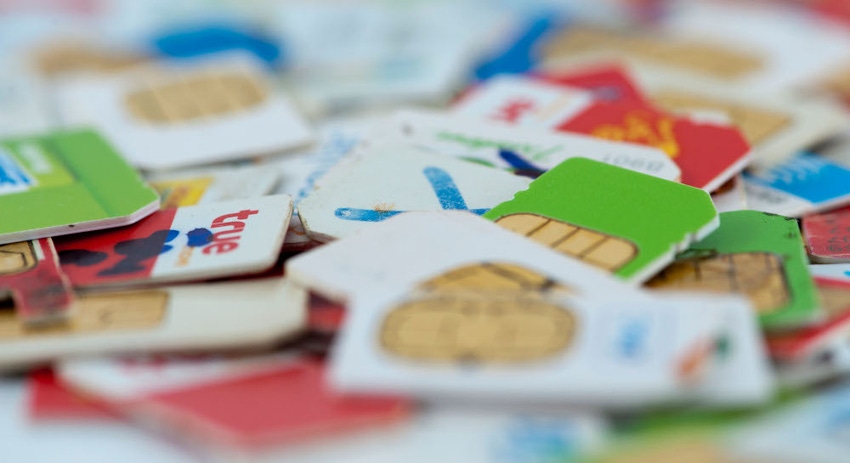Vodafone moves to cut massive plastic use in SIM cards
Vodafone is making a lot of noise about its plans to replace its SIM cards with ones made from recycled plastic.
October 19, 2021

Vodafone is making a lot of noise about its plans to replace its SIM cards with ones made from recycled plastic.
Fair enough. You can’t argue with a eco-friendly initiative like that. But perhaps the most striking thing about the whole announcement is how much plastic Vodafone is using to make SIM cards in the first place.
The mobile operator claims that the switchover will eliminate the need for the manufacture of 320 tonnes of virgin plastic per year.
320 tonnes?!
In the interests of good journalism, we had every intention of weighing a SIM and performing the necessary calculations, but were thwarted by not being able to find the metal pokey thing needed to extract it, nor a suitable replacement. And besides, ripping out the electronic chip to weigh only the plastic might have affected its function somewhat.
But an educated guess says we’re talking about a few grams here. So irrespective of whether Vodafone is weighing in imperial or metric tonnes, that’s still a lot of SIMs per annum.
There is probably extraneous plastic around those SIMs that goes to waste included in that calculation too, which would help to explain those big numbers.
So while Vodafone’s announcement might initially trigger little more than an ‘every little helps’-type reaction, the reality is that changing something as little as a SIM actually helps more than you might think.
Not producing those 320 tonnes of virgin plastic “has the potential to save…1,280 tonnes of CO2” per year, Vodafone said. Its choice of wording is pretty careful, but the message is clear.
The launch of the Eco-SIM – as Vodafone is calling it – follows an earlier initiative from the operator that saw it halve the size of its SIM card holders. The move, which took place globally in 2020, saved 340 tonnes of plastic per year, equivalent to a reduction of 1,760 tonnes of CO2.
“Our ultimate goal is to eliminate the need to supply plastic SIMs entirely,” said Alex Froment-Curtil, Chief Commercial Officer at Vodafone Group. “We have already halved the amount of plastic used in our SIM cards, and the introduction of Eco-SIMs made from recycled plastic will further reduce the environmental impact of our activities.”
The telco noted that it offers digital eSIM technology across its European footprint and that the number of compatible devices is growing. However, most mobile customers still require a physical SIM and will continue to do so until eSIM becomes more widespread.
Rollout of the Eco-SIM, in the new half-sized format, will get underway this month, progressively replacing SIM cards made from virgin plastic. The rollout will take place across Vodafone’s 12 European markets, plus Egypt, Turkey and South Africa.
About the Author(s)
You May Also Like








.png?width=300&auto=webp&quality=80&disable=upscale)


_1.jpg?width=300&auto=webp&quality=80&disable=upscale)


.png?width=800&auto=webp&quality=80&disable=upscale)